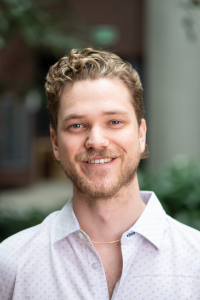Alexander Paish PhD Awardee

Ph.D. in Kinesiology
Supervisor: Dr. Chris McNeil & Dr. Neil Eves
Determining the impact of COPD on skeletal muscle fatigability
Chronic obstructive pulmonary disease (COPD) is a lung condition that leads to restricted airflow, shortness of breath and exercise intolerance. While COPD is a disease of the lungs, preliminary studies demonstrate maladaptation of the neuromuscular system which may perpetuate the fatigue that many individuals report. Currently, relatively little is known about how the neuromuscular system is altered in COPD. Thus, my research aims to explain the impact of COPD on the neuromuscular system. Specifically, I aim to identify the mechanisms that cause individuals with COPD to be more fatigable than healthy, age-matched controls and assess whether such alterations are different between females and males.
According to recent statistics, as many as 3 million Canadians >40 years-old have COPD, with the total economic burden estimated at $4.52 billion annually. Now the third leading cause of death worldwide (3.23 million people annually), COPD is not curable; however, its influence on symptoms can be reduced and exercise tolerance and quality of life enhanced utilizing exercise rehabilitation and personalized medication. The results from my research will identify specific causes of COPD-related increases in fatigability, which will allow for the additional development of interventions to target these impairments. Ultimately, I believe that in order to create the greatest benefit for people living with COPD, we must better understand activity-induced fatigue to create holistic treatments to enhance functional independence.
To the Stober Foundation
I’d like to express my deep gratitude to the Stober Foundation for their generosity and desire to advance innovative research that aims to enhance human health and improve the lives of individuals living with chronic conditions. The support I have received has allowed me to experience diverse expertise from renowned scientific leaders within their respective fields. I hope that I can use my training to not only further my own research and educate future scientists but also to translate our findings to guide novel and impactful therapies for those living with a debilitating condition like COPD.